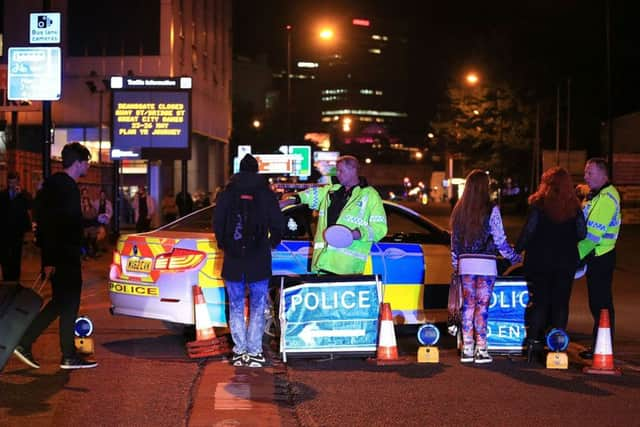Report finds failings in response to terror attack which killed South Shields couple Liam Curry and Chloe Rutherford


“Strategic oversights” by police commanders are said to have led to confusion with other 999 services over whether an “active shooter” was on the loose.
Poor communications between Greater Manchester Police and Greater Manchester Fire and Rescue Service meant “valuable” assistance of fire crews was delayed by two hours and six minutes after the bombing in May last year.


Advertisement
Hide AdAdvertisement
Hide AdThe 226-page report by Lord Bob Kerslake does not name individuals but makes 50 recommendations.
The panel of experts state they are not able to say whether earlier arrival of the fire service would have “affected any casualty’s survivability.”
But it says fire fighters “would have been much better placed to support and, potentially, to accelerate the evacuation of casualties from the foyer,” if they had gone to the scene.
The attack at 10.31pm on May 22, left 22 people killed - including South Shields couple Liam Curry, 19 and his girlfriend Chloe Rutherford, 17.


Advertisement
Hide AdAdvertisement
Hide AdNiether Chloe or Liam’s families wished to make a comment on the findings.
The report said British Transport Police officers were first on the scene and had declared a major incident by 10.39pm.
The police duty inspector in the Greater Manchester Police control room declared Operation Plato, a pre-arranged plan when it is suspected a marauding armed terrorist may be on the loose and assumed, wrongly, other agencies were aware.
But he was praised for taking one of the most crucial “life or death” decisions of the night, a “key use of discretion” to over-ride the rules and allow paramedics and police already on scene to continue treating the injured even though they may be further attacks. The senior fire officer on duty, a national inter-agency liaison officer, came to believe an “active shooter” scenario was still in play and stuck to rules which dictate keeping emergency responders 500 metres away from any suspected “hot” zone of danger from a potential armed terrorist.
Advertisement
Hide AdAdvertisement
Hide AdIt was “fortuitous” the NWAS (ambulance service) were not informed - otherwise they may have pulled out their paramedics and instead they stayed and “lives were saved” the report said.
As the fire officer could not get through on the phone to the police force duty officer the response of the fire service was, “brought to the point of paralysis” to the “immense frustration on the firefighters’ faces.”
The report says it hopes a scenario of different services control rooms not being able to properly pass critical information between them, “will never happen again”.